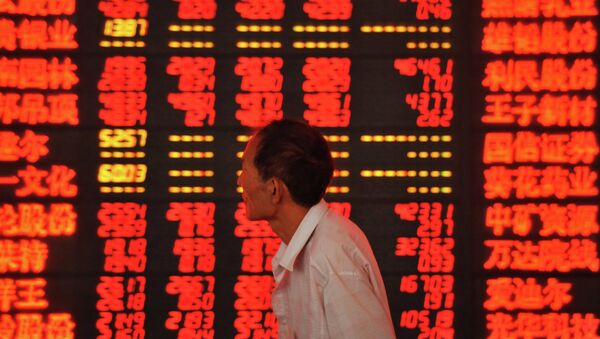Kristian Rouz — China's total volume of newly-issued loans posted its biggest advance in over six months, with borrowing in the corporate bond market rising. The country's enterprises, short on liquidity supply from the central government-controlled banks (previously one of their biggest sources of borrowing), are also diverting from the stock market in favor of bonds as well. Chinese stocks, despite being slapped with severe government regulations since their first decline in mid-2015, have slumped in swings and roundabouts, while the government sector remains heavily indebted.
Eventually, the country's corporate bond market might save the day for the nation's entire economy; however, the nascent tendencies might also suggest the accumulation of debt in the corporate sector, coupled with management inefficiency, might turn out to be only a temporary relief.
China's aggregate financing jumped to 1.82 trln renminbi (roughly $276 bln) in December, the People's Bank of China (PBoC) said, far surpassing earlier forecasts of 1.15 trln renminbi. While China's commercial entities are seeking reliable sources of financing, the central government's role in providing liquidity to the economy is diminishing, mainly due to the government-run banks' inability to provide enough credit to the market.
Macroeconomic fundamentals indicate the Chinese real economy is in relatively good shape, even despite the slower pace of growth at below 7% and the factory-gate near-disinflation caused by the crash in international demand. The bond market's increased involvement in financing the real economy might help boost these fundamentals, allowing for across-the-board economic relief.
Another reason China's bond market has come to prominence is that the Chinese stocks recently dropped about 20% from their relatively stable December high.
During the past year, Chinese companies issued and sold 8.1 trln renminbi ($1.23 trln), increasing their debt burden by 34% compared to that in 2014. Meanwhile, as demand for the Chinese bonds is high, the yield has dropped 0.69% throughout 2015, indicating a stabilization in the market.
While the upbeat bond market data might suggest an optimistic scenario for the broader Chinese economy, there is still a reasonable threat of debt financing turning into yet another bubble, in an unlucky consequence after the past two years' real estate and stock bubbles. Besides, even though debt accumulation might bolster economic expansion in the short- to medium-term, the longer-term effects of debt accumulation are rather negative or neutral at best, as interest servicing weighs on the increase on surplus produce, eventually hitting industries even faster than initial underinvestment.




